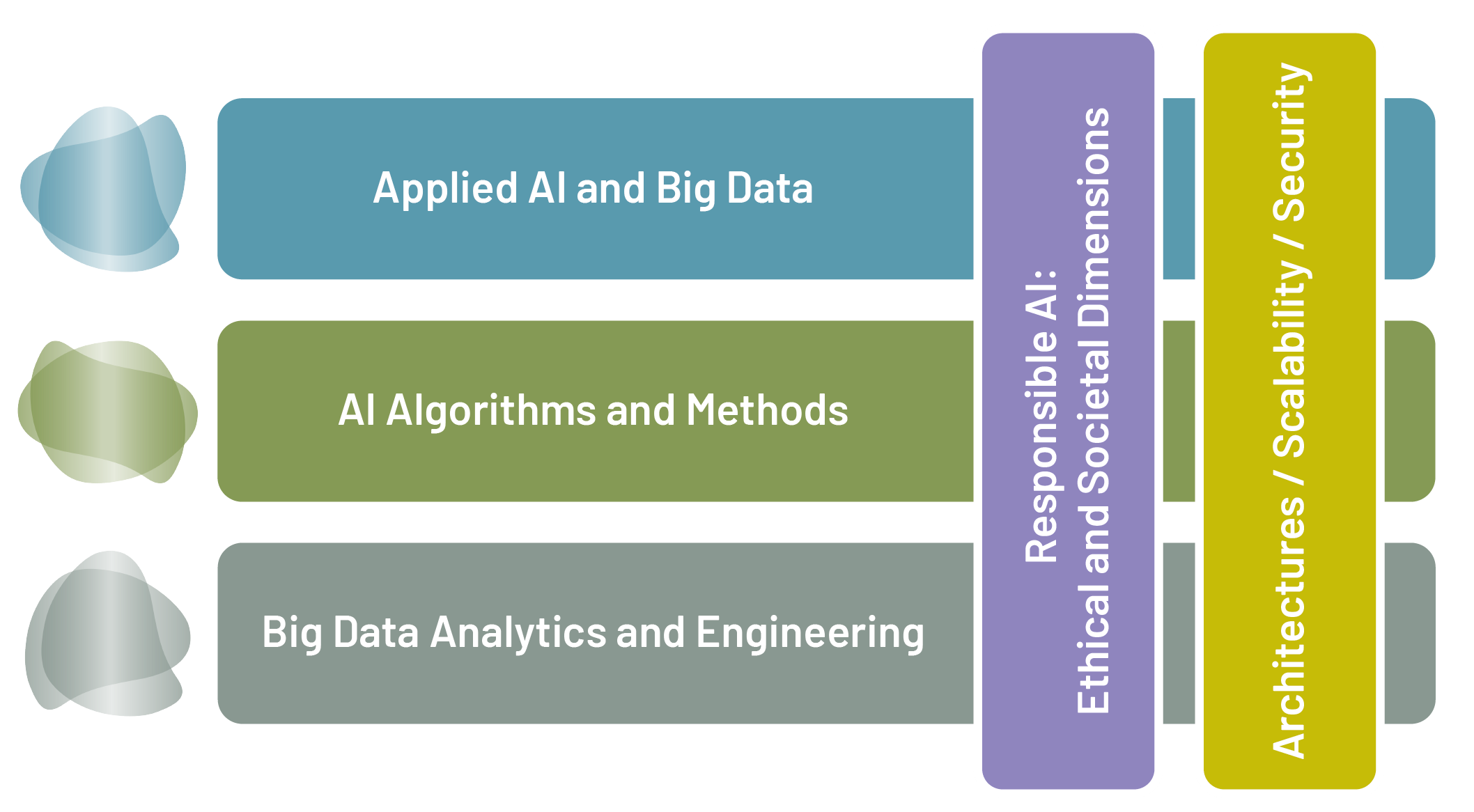
Research
At our two locations in Dresden and Leipzig, we investigate the need of AI applications for high quality data and formalized knowledge to achieve valid and reliable prediction and analytical results. We therefore combine research on new Fundamental AI methods not only with our Big Data research on data integration and data quality, but also with new methods for data acquisition and visualization to support data-driven AI. In addition, AI methods need to be systematically integrated into scientific analysis workflows, which can accelerate research progress in many areas. In addition, trust, transparency, and traceability of AI-driven decisions and processes are key. Finally, privacy and informational self-determination remain largely unresolved issues that we will tackle with research on privacy-preserving machine learning.
We contribute to the future development and use of AI in five key areas:

Applied AI and Big Data
We apply AI and Big Data methods in an interdisciplinary manner in various
research areas, e.g., medicine, natural sciences, humanities and social sciences.
AI Algorithms and Methods
We analyze cutting-edge research topics such as the distributed learning of very large
models, graph-based AI, natural language processing models, and the investigation and
development of neuromorph-inspired architectures.
Big Data Analytics and Engineering
Our research is based on the observation that Big Data solutions can only be
developed by taking into consideration the entire data lifecycle and adjusting to the modern data processing architectures.
Responsible AI: Ethical and Societal Dimensions
We are working on new techniques to preserve privacy in the application of AI
methods. Furthermore, we are investigating the explainability of AI decisions to make
them transparent and understandable.
Architectures / Scalability / Security
Our goal is to provide flexible, scalable, and secure computing solutions to lay a foundation for the deployment of new AI methods and applications. We provide a complete
computing platform, both from a hardware and software perspective.


